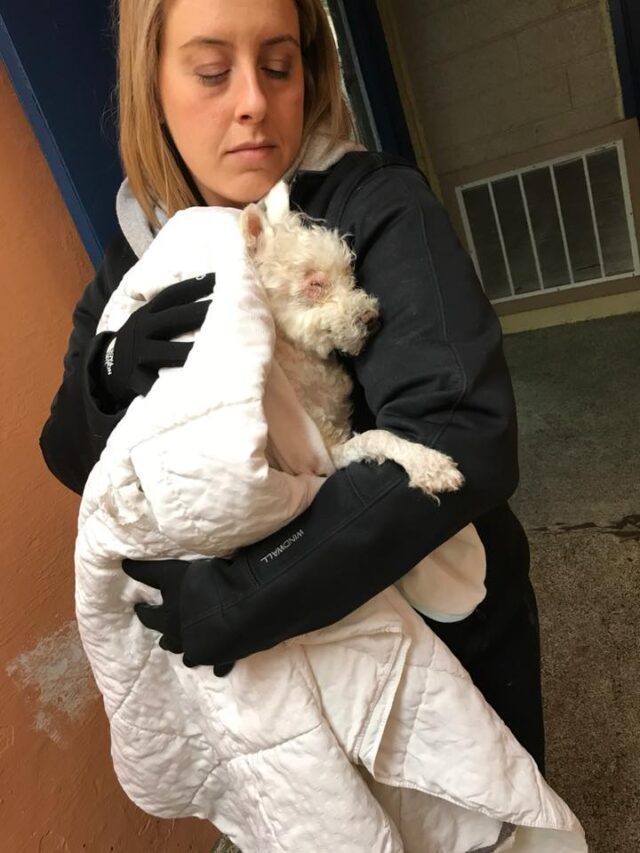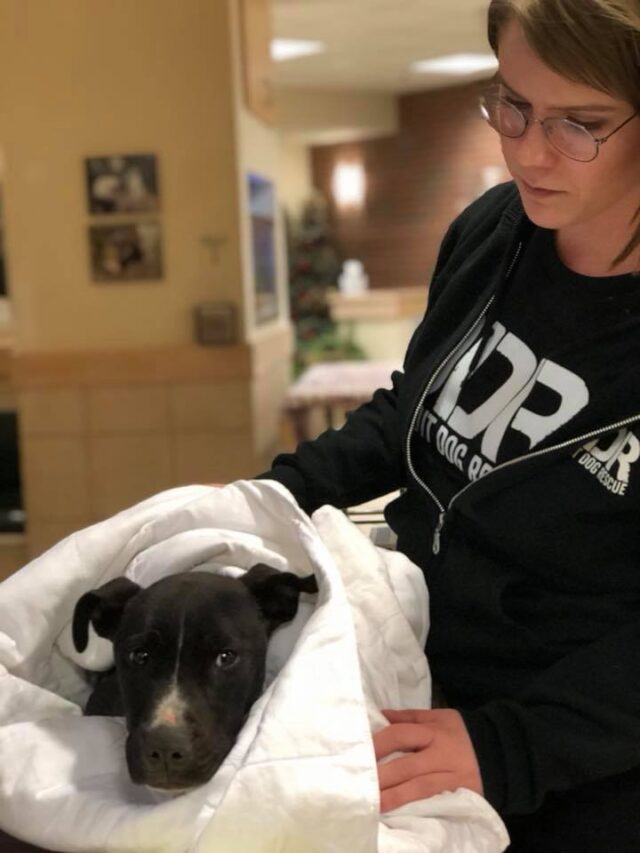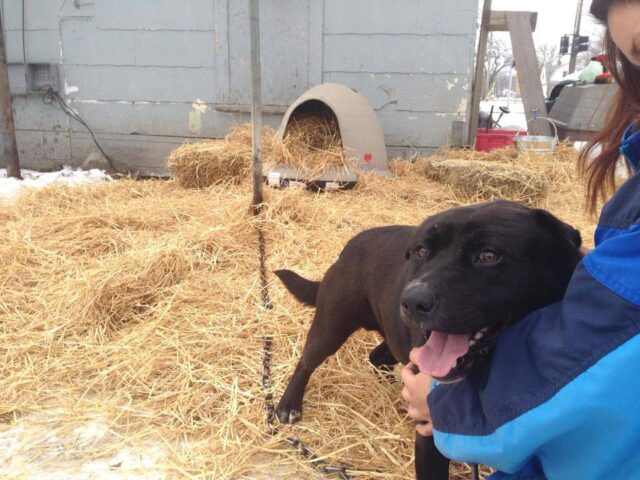There seems to be a misconception that because our dogs’ ancestors were built to withstand freezing temperatures, domesticated dogs can also handle extreme cold.
This is sadly not the truth for most breeds, as evidenced by the recent rash of dogs discovered frozen to death in the northern part of the country – some in their own backyards.
“We’re finding dogs dead in dog houses and strays curled up deceased in fields,” Detroit Dog Rescue founder Kristina Millman-Rinaldi told TODAY.com. “It’s maddening, sad and discouraging.”

You may be wondering exactly “how cold is too cold” for a pet to withstand. Dr. Kim Smyth, a veterinarian and pet health writer for Petplan, created this handy inforgraphic based on guidelines established by experts at Tufts University.

If you come across an animal in distress, your heart may tell you to scoop it up and carry it home to safety, but your good intentions could result in criminal charges being brought against you rather than the perpetrator. Instead, experts recommend you follow these guidelines:
1. Contact law enforcement.
They may direct you to another agency like your local animal control or humane society “depending on the specific situation and applicable law,” says Stacy Wolf, senior vice president of the American Society for the Prevention of Cruelty to Animals’ anti-cruelty group.
“It is best to be prepared to provide law enforcement with specific details, including the type of animal involved, as well as exactly when and where you observed the animal,” Wolf advises.
Be aware that while each state (as well as the District of Columbia) has anti-neglect and cruelty laws, standards for outdoor shelters and how long pets can be left outside vary from jurisdiction to jurisdiction.

Related Story: Officers Will Spend The Night In Outdoor Doghouses To Raise Awareness
2. Don’t like your local laws? Change them!
You may come across a pet living in conditions that appear cruel but are not considered illegal based on the current laws in your area. If local legislation is behind the times, lobby your lawmakers to provide more protection for the voiceless.
“It is imperative that there are strong laws in place to help ensure that animals do not freeze to death in extreme winter temperatures or die from exposure to extreme heat without adequate shade,” said Wolf.
If you think your efforts will fall on deaf ears, think again! Last winter, Washington D.C. animal lovers successfully fought for an emergency law to increase protections for animals during extreme weather. They were inspired by a pooch named Momma, left outside with only a straw-filled wooden doghouse deemed “sufficient shelter” under current law. A permanent version of Momma’s Law was unanimously passed in July 2017.

3. Reach out to government and/or private organizations that may be able to help.
Detroit Dog Rescue is a private 501(c)3 non-profit organization that works hand-in-hand with Detroit’s municipal shelter to help pets in need. The private and government organizations currently have “teams out day and night” responding to calls of possible cruelty and neglect in the frigid temperatures.
If you do not know who to turn to for help in your area, local animal rescue groups and shelters can help direct you to the right resource based on the situation. You can also try posting to social media sites such as Facebook pages for lost and found pets in your community.

4. Offer education and assistance within your community.
Project Underdog, a non-profit organization based in Saginaw, Michigan, provides shelter and supplies to dogs living outdoors. They help educate pet owners on properly caring for their pets throughout all four seasons and give out free doghouses and straw for warmth in winter.
Even if there is not an organization like this where you live, Wolf suggests reaching out to your neighbors personally and offering your assistance. Some owners may not realize just how dangerous it is to leave their pets out in the elements. Others may be in financial need or disabled in some way. If your efforts to help are rebuffed, Wolf recommends “being diligent in following up and urging law enforcement to take action.”

5. Volunteer or donate to support rescue organizations.
Non-profit groups like Detroit Dog Rescue and Project Underdog rely on their volunteers and donors to help them save lives. If you cannot make a financial donation, maybe you have supplies around your home like warm blankets you can spare.
To many groups, your time is even more valuable than money or supplies. Whether you participate in community outreach or assist the rescue team in the field, non-profits are always in need of volunteers with a little bit of free time and a lot of love to spare!
H/T to TODAY.com
Featured Image via Facebook/Detroit Dog Rescue
 Toledo, United States.
Toledo, United States.